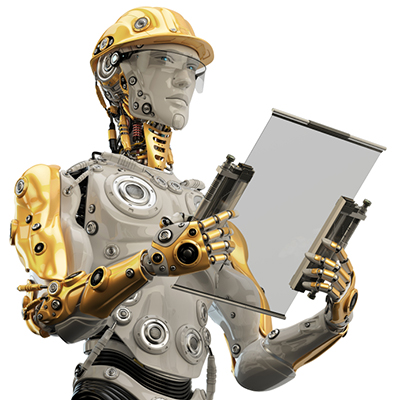Industry 4.0 and the Future of Manufacturing
The previous three industrial revolutions introduced the initial mechanisation of the work force, including water and steam powered machines, mass production, electricity, the assembly line, computerised systems and automation.
Industry 4.0 is the fourth industrial revolution and the modern trend of both automation and collaboration of data on manufacturing technology. The Smart Factory of the future is categorised by efficiency in the production processes, with all procedures being performed and conducted smoothly and effortlessly.
The Principles and Main Components of Industry 4.0
Industry 4.0 will have interoperability as a main factor; the Internet of Things (IoT) will ensure that all smart devices are connected to each other, providing a connective feature to all components. Communication is vital between smart factories, humans, and technologies, in order to guarantee a cooperative environment that includes assembly lines, people operating them, and the products themselves.
Decentralisation will allow for quicker decision-making, ensuring that all systems comprising the Smart Factory are able to make decisions distinctly. This process will, however, maintain in the path towards the decisive goal within the organisations.
Shaping the Industry 4.0 will be autonomous robots or, more precisely, artificial intelligence. Robots have been present in manufacturing for many years, but they will continue to evolve and improve, becoming completely autonomous in the near future. Their use as tools will end, and they will become integral units working alongside humans.
Potential Challenges
With a new industrial revolution emerges obstacles that need to be overcome, to allow for a full implementation of successful changes. In Germany, an investment of 250 billion in the next ten years will be required for manufacturers to adapt and implement all processes of the Industry 4.0.
Similarly, systems and machines capable of sustaining the demands of Industry 4.0 are required so that all production processes are effectively completed. Connectivity and standardisation across all industries all over the world will open way to international standards for an organised interaction.
The question with Industry 4.0 is how quickly it will finish being implemented, as traditional manufacturing business models are opening the way to the emergence of the digital transformation and new business models focused on the future of automation and artificial intelligence.
As compression spring manufacturers and leading experts in high speed press technology, here at European Springs we understand the importance of the new industrial revolution is optimising all parts of the manufacturing process. Our team of experts always ensure the highest possible service, and you can get in touch with us on +44 (0) 208 663 1800 to know more about how we can help provide you with high quality springs and pressings.
You can also follow us on Facebook and Twitter to see our latest news and updates.
European Springs
